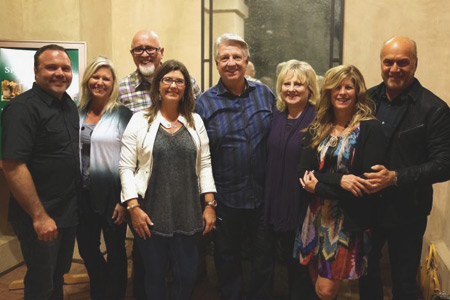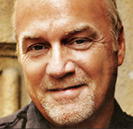Latest
-
Objections to the Christian Faith from the Unchurched and De-Churched
 Tue Dec 02, 2014
Tue Dec 02, 2014
by Resurgence -
Craig Groeschel: We Innovate for Jesus
 Tue Oct 14, 2014
Tue Oct 14, 2014
by Resurgence -
Mark Driscoll: Revelation
 Tue Oct 07, 2014
Tue Oct 07, 2014
by Resurgence -
RESURGENCE LEADERSHIP #034: JOHN PIPER, WHY I TRUST THE SCRIPTURES, PART 2
 Tue Sep 30, 2014
Tue Sep 30, 2014
by Resurgence -
Resurgence Leadership #033: John Piper, Why I Trust the Scriptures, Part 1
 Tue Sep 23, 2014
Tue Sep 23, 2014
by Resurgence

Archives
‘Failure can be a great teacher’: Greg Laurie talks with Mark Driscoll

This fall, Greg Laurie will speak at our main 2013 Resurgence Conference event in Seattle. In this post, he talks with Pastor Mark about his turbulent childhood, losing his child, and not resting on your laurels.
I am so grateful for the life of Greg Laurie. His love for the church is exemplary, and I praise God for his passionate evangelism. Last weekend I had the opportunity to spend time with my friend as he celebrated 40 years in ministry. He’s still going strong as senior pastor of Harvest Christian Fellowship, the host of a syndicated radio program, and founder of Harvest Crusades.

Last year, Greg Laurie was a keynote speaker at the 2012 Resurgence Conference, and we’re honored to welcome him back for this year’s R13 event in Seattle on November 5–6. Recently, Greg was kind enough to answer a few question for young leaders, based on the theme for this year’s Resurgence Conference.
Mark Driscoll: You’ve told the story of your difficult childhood. How did God use that experience in your life?
Greg Laurie: Short answer: My childhood was turbulent.
 My mom was married and divorced seven times and was a raging alcoholic. She often would not come home at night, and when she did, she would usually pass out. In many ways, I had to grow up fast and take on the parental role in our relationship. I learned how to take care of myself and be resourceful.
My mom was married and divorced seven times and was a raging alcoholic. She often would not come home at night, and when she did, she would usually pass out. In many ways, I had to grow up fast and take on the parental role in our relationship. I learned how to take care of myself and be resourceful.
These early childhood experiences also sent me on a search early in life for some kind of meaning, which I certainly did not see in the adult world I was exposed to, nor in the counter-culture that was beginning to explode in my teen years. Going through that process of elimination—knowing what the answer was not—resulted in my conversion. I found out what the answer was (and is!) when I heard the gospel and made a commitment to follow Jesus Christ in 1970.
MD: How did God call you into ministry?
GL: My background was in graphic design. My sole ambition was to be a professional cartoonist. I had some of my cartoons published in Surfer magazine at age 16, and I corresponded with Charles Schulz, the creator of “Peanuts.”
After I became a Christian, I wanted to use my artistic abilities to glorify God. So after hearing a message at church about the conversation between Jesus and the woman at the well in John 4, I created a little cartoon booklet (or “tract” as we called them) and I gave it the title “Living Water.” Well over a million of them were printed and distributed around the world.
Though I freelanced and supported myself with graphic design, I felt a pull toward speaking more and more about my faith. This was never something I had any interest in before, but that’s probably because I had nothing to say! But seeing how Jesus Christ had changed (and was continuing to change) my life, I wanted to get that message out to others. I found that sharing it through graphic design was too limiting.
I was 17 when I came to faith, 18 when I started preaching, and 20 when I began pastoring a church.
In essentials, unity. In non-essentials, liberty. In all things, charity.
MD: What was young Greg Laurie like?
GL: I was full of zeal, but very limited in my knowledge of Scripture. I was traveling with some Christian bands and giving gospel messages. Since I was in a new town every night, I could give the same message over and over. But when our church began to take off, I preached through my repertoire of messages quickly and realized I needed to dig deeper—much deeper.
It was then that I started teaching through books of the Bible, chapter by chapter, verse by verse. I believe the first book I preached through was Ephesians. I was working things out in my study and preaching them that night. Talk about “on-the-job” training! If you are going to teach on something, you will study it like there is no tomorrow.
In my early years, I felt that I needed to win every debate and help everyone to see things my way! As I have matured—though I still have a long ways to go—I have found that there can be flexibility and that there are both major and minor issues. I like the saying, “In essentials, unity; in non-essentials, liberty; in all things, charity.”
We will be judged for how faithful we were.
MD: Forty years is a long time. Did you ever want to quit?
GL: I have never, ever wanted to quit ministry. But I, like everyone else, have faced deep discouragement—sometimes because of fellow Christians.
There were times when I felt strongly directed by the Lord to do something, and there were those who would tell me, “It will never work.” But in my case, to tell me something would never work is like putting a red cape in front of a bull. It just makes me more determined to do it.
As leaders, we must do all that we do for Christ. We must not do it for the applause or approval of men. Scripture reminds us that the “fear of man will prove to be a snare” (Prov. 29:25, NIV). When we stand before God one day, we will be judged for how faithful we were to what the Lord called each of us to do.
Failure can be a great teacher.
MD: At this stage in the game, it’s easy for young leaders to look up at Greg Laurie and see only success. What has God taught you through failure over the years?
GL: I have had my share of failures, like everyone else. In the immortal words of that great theologian Dirty Harry, “A man’s got to know his limitations.” I have always sought to surround myself with people who were gifted, especially in the areas I am not particularly skilled in.
Failure can be a great teacher. The doorway to success is often entered through the hallway of failure. So, if at first you don’t succeed . . . relax! You’re just like the rest of us.
Ultimately, we will hopefully hear Jesus say to us, “Well done, good and faithful servant!” Notice he does not say, “Well done, good and successful servant!” That’s not to say we should not want to be successful. I certainly favor that over failure. But I believe if we are faithful to the task God has set before us, that is the ultimate success.
We must avoid the trap of thinking, “Bigger is better.” I have never sought to have a large church, per se, but a strong one. I have always felt we ought to leave the numerical growth up to God. If we take care of our depth, God will take care of our breadth.
After 40 years of ministry, I relate more to an older David.
What verses or passages in the Bible have stood out to you over the years? Which books have you most enjoyed teaching?
GL: Certain stories from Scripture have always resonated with me, along with oft-quoted passages. I remember as a pastor just starting out, I related very closely with the life of young David. Now, after 40 years of ministry, I relate more to an older David with the unique challenges he faced as a leader. I find myself thinking more about finishing this race well and avoiding the pitfalls that have caught a number of other leaders. The story of Joseph has always been a very meaningful one to me as well.
As far as passages of Scripture, I would have to say Romans 8:28, Jeremiah 29:11, and John 14:6 have been significant to me. I have always loved teaching the Gospel of John and the Epistle to the Romans. When I finish those books, I want to start them over again!
They told me “Billy Graham crusade-style” ministry was dying out.
MD: As you look back on your life, what moments stand out as especially pivotal: a risk you took, a decision you made, or a lesson you learned?
GL: Starting our church in 1974 was a huge risk. The odds were stacked against us in every way. You have to understand, what we take for granted today was unheard of then, like contemporary Christian music—with electric guitars, drums, etc.—as well as contemporary Christian worship. The dress style in most churches was still very conservative, too.
We were one of the first churches I know of to use a more current style of worship in our Sunday morning services as opposed to so-called “youth services” on special evenings. By God’s grace, we succeeded.
As you get older, you find yourself less inclined to take risks.
Fast-forward to the beginning of our evangelistic crusade ministry in the early ’90s. That too was a big risk. That too had “failure written all over it” in the minds of some. They told me that “Billy Graham crusade-style” ministry was dying out. But I did not agree with them then, nor do I agree with them now. This style of communication, which I call “proclamation evangelism,” goes back to the day of Pentecost with the Apostle Peter. George Whitefield, D.L. Moody, Billy Sunday, Billy Graham, and others have all followed in Peter’s footsteps, and I follow in theirs.
As you get older, you find yourself less inclined to take risks. You become more conservative and set in your ways. So when we felt directed by the Lord to start Harvest Orange County, that too was risky. There was a concern that our congregation in Riverside would resent this newer congregation in Orange County. But instead they embraced and supported it, and now we have expanded our borders and it has resulted in both churches being blessed.
If we take care of our depth, God will take care of our breadth.
Starting another church later in life is a bit like having children. When you are a newly married couple and you first have kids, you just do the best you can. But when you are older, you have a lot more experience and also perhaps a bit more caution. But I think you can enjoy the whole process more, not worrying so much about the growth process. You realize one of the greatest joys of ministry is not the destination—“large, successful church,” for example—but it’s the journey there: the lives that your life intertwines with, the early experiences of trusting the Lord and watching God provide and guide and lead and bless.
I would say, don’t be in too much of a rush. Appreciate the moment. It is indeed a great privilege to be called to serve the Lord. We must never take it for granted. I love preparing and teaching and preaching messages more than I ever have.
MD: I remember when your son died in a car crash a few years ago. I cannot imagine the anguish of losing a child. How did that experience change your relationship with Jesus? How did it change your approach to ministry?
GL: No, you cannot imagine it. Nor could I ever have. As a pastor who has served for over 40 years, I have walked with many families who have lost children. In a couple of instances, I was personally friends with the family and I knew the child very well. I remember many times, after walking away from a funeral service for a little one and seeing the deep sorrow and pain of the parents, I would pray, “I hope this never happens to me, because I don’t think I could handle it.” Well, it did happen to me.
And though I thought I knew what it was like to some degree, I realized I was completely clueless. It is the deepest, hardest prolonged pain I have ever had to deal with. Not a day goes by that I do not think of my son Christopher, who would now be 38 years old.
People perceive you differently when you have suffered catastrophic loss.
But having said that, God has given me and my wife the strength to get through it. His promises are true and they have been proven true in our lives. There are many things that have come from this that I would describe as “good.” Going back to one of my favorite passages, Romans 8:28, “We know that for those who love God all things work together for good, for those who are called according to his purpose.”
That verse does not say that God makes bad things good. Losing our son was a very bad thing—the worst thing imaginable, really. But despite this bad thing, good things have come. One of them is a greater determination to pursue those things God has called me to do. I have found a greater boldness to take leaps of faith in my later years in life. Realizing the fragility and shortness of human life, I have wanted to make every day count.
I have also been given a new ministry I never really wanted: ministering to others who have lost loved ones, especially children. Shortly after Christopher went to heaven, at the urging of others who had lost loved ones, I was encouraged to keep a diary. I wrote what I was feeling and learning for about the first month, when I decided I would put it into a book. I wanted to write about it in real time, while the pain was still raw, so that when someone else who had just lost a loved one read it, they would know that I too was in that same valley. That book, Hope for Hurting Hearts, has been used of God to bring comfort to many.
You don’t want to waste your pain.
It’s funny how people perceive you differently when you have suffered catastrophic loss. They hear you differently because, in their mind, you are more on their level, so to speak. It’s been said, “Success builds walls while failure builds bridges.” In other words, you can speak from your difficulties to others and they are reminded that you live in the same world that they do.
It’s also been said, “If you preach to hurting people, you will never lack an audience.” There are a lot of people in pain listening to us speak, and we have the comfort of Scripture and the hope of the resurrection to speak to them about. As Paul reminds us, we can comfort with the comfort we have been comforted with (2 Cor. 1:4).
You don’t want to waste your pain, but use it as a tool to reach others who are in pain.
MD: Having seen the Calvary Movement begin and grow to maturity, what advice, guidance, and perspective can you share with future movement leaders?
GL: The Calvary Movement came into being during the much larger Jesus Movement that swept across the church internationally. Many of the largest churches in the United States are Calvary Chapels. We are thankful for all God has done.
One of the great stabilizing forces in this movement has been a dependence on the Holy Spirit and an adherence to biblical exposition. Our danger is in living in our past and resting on our laurels. This is true of any aging movement.
My prayer for our movement is that it remains just that—a movement.
We must not forget our roots and heritage, but at the same time, we need to remain current in our communication. Often in the church, we are answering questions no one is asking instead of answering the questions that are being asked. My prayer for our movement is that it remains just that—a movement—and does not become a machine, or worse, a monument.
This year’s 2013 Resurgence Conference main event will be held in downtown Seattle November 5–6, with live broadcast, speakers, and music to Orlando (FL), Albuquerque (NM), Reno (NV), and Bellevue (WA). Click below for more details: